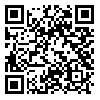Volume 17, Issue 1 (Spring 2025)
2025, 17(1): 92-100 |
Back to browse issues page
Ethics code: IR.NKUMS.REC.1402.088
Clinical trials code: IRCT20231023059818N1
Download citation:
BibTeX | RIS | EndNote | Medlars | ProCite | Reference Manager | RefWorks
Send citation to:



BibTeX | RIS | EndNote | Medlars | ProCite | Reference Manager | RefWorks
Send citation to:
khankolabi M, Ahmadzadeh M, Shahrabadi R, Saadati H, Tavakoli Ghochani H. Investigating the Effect of an Educational Intervention Based on Freire's Educational Model on the eHealth Literacy of Health Care Workers in Bojnurd. North Khorasan University of Medical Sciences 2025; 17 (1) :92-100
URL: http://journal.nkums.ac.ir/article-1-3166-en.html
URL: http://journal.nkums.ac.ir/article-1-3166-en.html
Mehdi Khankolabi1 

 , Masomeh Ahmadzadeh *2
, Masomeh Ahmadzadeh *2 

 , Reza Shahrabadi3
, Reza Shahrabadi3 

 , Hassan Saadati1
, Hassan Saadati1 

 , Hamid Tavakoli Ghochani4
, Hamid Tavakoli Ghochani4 




 , Masomeh Ahmadzadeh *2
, Masomeh Ahmadzadeh *2 

 , Reza Shahrabadi3
, Reza Shahrabadi3 

 , Hassan Saadati1
, Hassan Saadati1 

 , Hamid Tavakoli Ghochani4
, Hamid Tavakoli Ghochani4 


1- Assistant Professor, Department of Health Education and Promotion, School of Public Health, North Khorasan University of Medical Sciences, Bojnurd, Iran
2- MSc Student (Health Education), Department of Health Education and Promotion, School of Public Health, Sabzevar University of Medical Sciences, Sabzevar, Razavi Khorasan, Iran ,m.ahmadzadeh.8568@gmail.com
3- Associate Professor, Department of Health Education and Public Health, School of Health, Sabzevar University of Medical Sciences, Sabzevar, Iran
4- Assistant Professor, Department of Public Health, North Khorasan University of Medical Sciences, Bojnurd, Iran
2- MSc Student (Health Education), Department of Health Education and Promotion, School of Public Health, Sabzevar University of Medical Sciences, Sabzevar, Razavi Khorasan, Iran ,
3- Associate Professor, Department of Health Education and Public Health, School of Health, Sabzevar University of Medical Sciences, Sabzevar, Iran
4- Assistant Professor, Department of Public Health, North Khorasan University of Medical Sciences, Bojnurd, Iran
Abstract: (1554 Views)
Introduction: Healthcare workers should have acceptable ehealth literacy. This study was conducted to determine the effect of an educational intervention based on the Freire educational model on the ehealth literacy of healthcare workers in Bojnurd City.
Method: The present study was an interventional and quasi-experimental research conducted among all healthcare providers working in health centers in the city of Bojnord. Participants were selected through a census method and divided into two groups: an intervention group (n=40) and a comparison group (n=40). The data collection tool included a two-part questionnaire consisting of a demographic information form and a standard ehealth literacy questionnaire. Interventions were conducted based on Freire's model in 5 combined training sessions, including theoretical, practical, and virtual face-to-face sessions for the intervention group. The questionnaires were completed by the subjects before, immediately after, and two months after the educational intervention. The data were analyzed using SPSS24 software and appropriate statistical tests.
Results: Based on the results of the study, there was no statistically significant difference between the mean scores of ehealth literacy in the intervention and control groups before the educational intervention (P=0.064). However, a statistically significant difference was observed between the mean ehealth literacy scores in the intervention group compared to the control group immediately and two months after the educational intervention (P<0.05).
Conclusion: As a result, the educational intervention based on the Freire education model is effective in improving the level of ehealth literacy of healthcare workers. Therefore, it is essential to plan and take action to empower healthcare workers in this field so that they can take steps to improve the health of their society.
Method: The present study was an interventional and quasi-experimental research conducted among all healthcare providers working in health centers in the city of Bojnord. Participants were selected through a census method and divided into two groups: an intervention group (n=40) and a comparison group (n=40). The data collection tool included a two-part questionnaire consisting of a demographic information form and a standard ehealth literacy questionnaire. Interventions were conducted based on Freire's model in 5 combined training sessions, including theoretical, practical, and virtual face-to-face sessions for the intervention group. The questionnaires were completed by the subjects before, immediately after, and two months after the educational intervention. The data were analyzed using SPSS24 software and appropriate statistical tests.
Results: Based on the results of the study, there was no statistically significant difference between the mean scores of ehealth literacy in the intervention and control groups before the educational intervention (P=0.064). However, a statistically significant difference was observed between the mean ehealth literacy scores in the intervention group compared to the control group immediately and two months after the educational intervention (P<0.05).
Conclusion: As a result, the educational intervention based on the Freire education model is effective in improving the level of ehealth literacy of healthcare workers. Therefore, it is essential to plan and take action to empower healthcare workers in this field so that they can take steps to improve the health of their society.
Keywords: Digital Health, Electronic Health Literacy, Freire Educational Model, Health Literacy, Healthcare Workers
Type of Study: Orginal Research |
Subject:
Basic Sciences
Received: 2024/01/22 | Accepted: 2024/11/30 | Published: 2025/03/12
Received: 2024/01/22 | Accepted: 2024/11/30 | Published: 2025/03/12
Send email to the article author
| Rights and permissions | |
 |
This work is licensed under a Creative Commons Attribution-NonCommercial 4.0 International License. |




